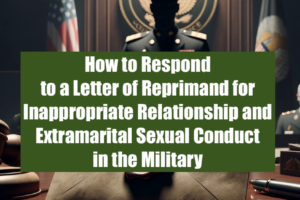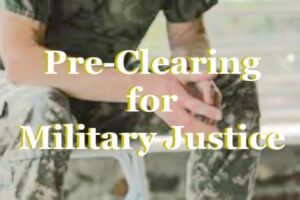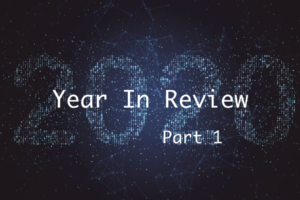
I am an advocate for justice, for military justice. I also am a leader and an entrepreneur. Balancing the demands of career and home pose many challenges, and chief among them: knowing when to take calculated risk and when to hold position.
For the last year plus, I did not make forward movement on behalf of one of my passions: the International Association of Military Defense Lawyers, a non-profit started whose goal is to “raise the bar” in the practice of military justice. Part of that initiative is to train and mentor military counsel; another is to bring together the might of the civilian defense counsel bar so that we might benefit from the vast knowledge experience of the years we have amassed.
Despite some initiatives to drive membership, only a few people joined the association so I was discouraged. Personal matters needed my attention so I was unable to devote continued personal financing and things stagnated.
This year, I knew I wanted to reengage in the IAMDL mission. I embarked for the organization to put on a Military Justice specific Continuing Legal Education course. To my knowledge no others exist. I was worried that I might fall flat on my face, and that no one would attend. Registrations trickled in, and I made a promise to myself to consider the conference a success so long as someone showed up and left with greater insight, a new idea for a motion, or another contact in our small community. The Army’s Trial Defense Service sought approval for five attorney attendees, but at the last minute the request was disapproved.
This inaugural CLE was small in number but mighty in experience and the desire to learn. Our size allowed for flexibility in the agenda, and I was able to discern that the group wanted more training on the Military Justice Act of 2016. We trained together, learned from each other, and brainstormed how to combat prosecutorial strategies. What I believe was the greatest asset of our time together was in asking our appellate attorney attendees about the kinds of motions we should be filing in response to the MJ Act’s changes. As military justice amendments continue to abridge the rights of the military accused, it was invaluable to strategize as trial attorneys and appellate attorneys.
Lastly, we were fortunate to receive a talk from a member of the trial judiciary. His “View from the Bench” bridged a gap for civilian counsels, who ordinarily do not attend sessions with military judges where they discuss their preferred practice methods and emphasize civility.
As the conference was ending, feedback continued to be positive and turned to what we can do next year. I am hopeful we will grow in number, but feel encouraged by what we can accomplish even in small gatherings. Most of all, I am renewed by those in the trenches who are all daring to fear less for military justice.
You Might Also Like These Articles How to Respond to a Letter of Reprimand for Inappropriate Relationship and Extramarital Sexual Conduct in the Military Receiving a… A common situation that causes military personnel to reach out to our office is the distressing experience of being told… To say 2020 has been a bit different would be an understatement. I, along with my team, have fought long…






 REQUEST A CONSULTATION
REQUEST A CONSULTATION 